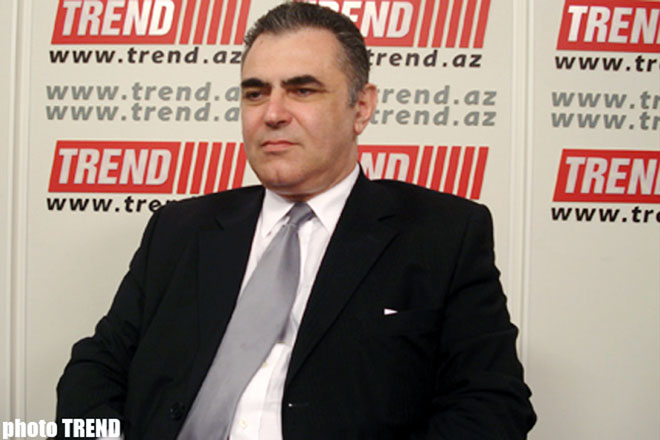Azerbaijan, Baku, Dec. 21 /Trend, E.Tariverdiyeva/
Today, Dec. 21, the British LINKS Research Center published the second part of its report: "Karabakh: the big debate", Dennis Sammut, executive director of the British NGO LINKS, told Trend.
This part of the research reflect the views of the Azerbaijani political parties.
According to Sammut, in future LINKS also hopes to publish the views of Armenian politicians of separatist Nagorno-Karabakh and Azerbaijani politicians expelled from the territory of Nagorno-Karabakh as a result of the conflict.
"This work is part of our efforts to expand the discussion over Karabakh conflict and its solution within and between Armenians and Azerbaijanis. This discussion will contribute to the peace talks between the two countries," he said.
The part of the LINKS report published today says that Azerbaijani political parties are fairly unanimous in seeking a solution to the Karabakh conflict based on the restoration of the territorial integrity of Azerbaijan, i.e. the return of Nagorno-Karabakh and the adjoining territories lost to Armenia in the conflict.
There is widespread recognition of the need to give Nagorno-Karabakh extensive autonomy within Azerbaijan. Some parties have elaborated detailed plans of how this can be done. There is also recognition by some parties that the deployment of international peacekeeping forces of some sort will be needed, the LINKS report says.
Some party spokespersons highlighted the need for Azerbaijani democracy to be strengthened in order to make the preposition of a return of the Armenian population of Nagorno-Karabakh back into the Azerbaijani fold more attractive, according to the report.
Most of the political parties interviewed by LINKS consider the military option as a possible solution to the problem. There is a quasi fatalistic tone to this preposition based on an assumption that Azerbaijan will have to resort to the military option if all else fails, whatever the cost.
There are many different opinions with regards to the role of the international community, the Minsk Group process and key international actors. However there is a tone of suspicion in the voice of all those interviewed. Only Turkey's role is generally welcomed, the report says.
According to the report, the European Union, in as much as it is mentioned, is usually regarded in a positive manner.
The conflict between the two South Caucasus countries began in 1988 when Armenia made territorial claims against Azerbaijan. Armenian armed forces have occupied 20 percent of Azerbaijan since 1992, including the Nagorno-Karabakh region and 7 surrounding districts.
Azerbaijan and Armenia signed a ceasefire agreement in 1994. The co-chairs of the OSCE Minsk Group - Russia, France, and the U.S. - are currently holding the peace negotiations.
Armenia has not yet implemented the U.N. Security Council's four resolutions on the liberation of the Nagorno-Karabakh and the surrounding regions.






